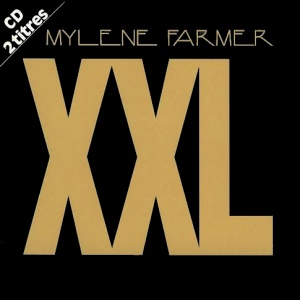
"XXL" is a 1995 song recorded by French singer-songwriter Mylène Farmer. The song was the lead single from her fourth studio album Anamorphosée and was released on 19 September 1995. It marked an important change in the singer's career, with more pronounced variété sonorities, more accessible lyrics, and a music video directed by a new producer. Although it entered directly at number one on the French singles chart, it dropped quickly and achieved mixed success.

"Redonne-moi" is a 2005 song recorded by the French artist Mylène Farmer. This pop ballad was the third single from her sixth studio album, Avant que l'ombre..., and was released on 2 January 2006. Like all other tracks of the parent album, it was written by Farmer and the music was composed by Laurent Boutonnat. The song has poetic lyrics and a melancholy music, and is about death, memory, and hope. About three months before the release, Farmer exceptionally accepted to perform the song in a television show, which she did not for other singles from Avant que l'ombre.... The accompanying music video, filmed by François Hanss and broadcast from 11 January 2006, shows Farmer singing in a sculpture workshop. In spite of being a top ten hit in France, "Redonne-moi" became the less-selling single from the album, with rather disappointing sales figures.
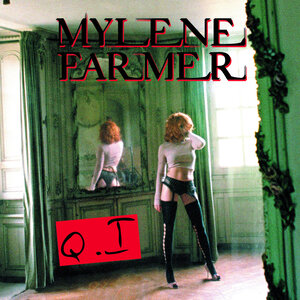
"Q.I" is a 2005 song recorded by French singer-songwriter Mylène Farmer. It was the second single from her sixth studio album, Avant que l'ombre..., and was released on 4 July 2005. Like all other tracks from the album, the lyrics were written by Farmer and the music was composed by Laurent Boutonnat. The primary meaning of the song is the attraction to one's partner's intelligence, but the lyrics are ambiguous enough to allow a more sexual interpretation. The accompanying music video was filmed by Benoît Lestang in Budapest and starred Rafael Amargo and Farmer, performing soft erotic scenes in a bedroom; however, the video was not well received. Variously received by the media, the song became a top ten hit in France and Belgium (Wallonia).

"Fuck Them All" is a 2005 song recorded by French singer-songwriter Mylène Farmer. Released on 14 March 2005, it was the lead single from her sixth studio album, Avant que l'ombre.... Like all tracks from the album, the lyrics were written by the singer with music composed by Laurent Boutonnat. "Fuck Them All" combines pop music elements with acoustic guitar, electronic beats and synths, with a musical bridge sung as a rap in English. As a result, it is often compared to Madonna's early 2000s songs. Using both crude and colorful lyrics, including sex and vulgarity, the song deals with the war between the sexes and was often considered a feminist plea in which women are presented as warriors.
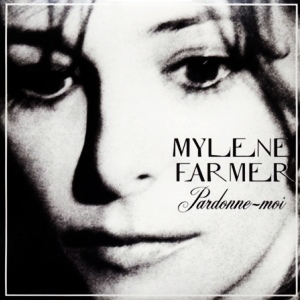
"Pardonne-moi" is a 2001 song recorded by French singer-songwriter Mylène Farmer, with lyrics written by herself and music composed by Laurent Boutonnat. It was the third and last single from Les Mots, and was released on 21 October 2002. The song is about the unhappy love of a woman who is asking for forgiveness from the Oriental princes whom she loves. The black and white accompanying music video was directed by Boutonnat in Morocco and shows Farmer dressed as a nun, with images of a knight galloping on horseback and a snake. Like the single "À quoi je sers..." released thirteen years earlier, "Pardonne-moi" is generally deemed a synthesis of Farmer's work and thus marked the end of an artistic period in her career. The song received positive reviews from critics and became a top ten hit in France and in the Waloon Belgium, although its sales were rather disappointing.

"Avant que l'ombre..." is a song recorded by the French artist Mylène Farmer in a studio version in 2005 and in a live version at the time of her 2006 concerts at Bercy (Paris). It was the first single from her fourth live album, Avant que l'ombre... à Bercy, and was released on 26 November 2006. It achieved a moderate success in terms of sales, although it reached the top ten in France.

"Les Mots" is a 2001 song recorded as a duet by the French singer-songwriter Mylène Farmer and the English soul singer Seal. It was the first single from her best of album, Les Mots, and was released on 13 November 2001. It was Farmer's third duet, after those with Jean-Louis Murat in 1991 and Khaled in 1997, and her first international duet. "Les Mots" is a bilingual song, containing verses in French and in English. In terms of sales, "Les Mots" is Farmer's fourth biggest success in France, behind "Désenchantée", "Pourvu qu'elles soient douces" and "Sans contrefaçon".

"L'Histoire d'une fée, c'est..." is a 2001 song recorded by French singer-songwriter Mylène Farmer. It was one of the singles from the soundtrack album for the film Rugrats in Paris: The Movie. With its lyrics written by Farmer and the song being composed and produced by her long-time songwriting collaborator Laurent Boutonnat, "L'Histoire d'une fée, c'est..." was released on 27 February 2001. The song describes the fairy Mélusine with "childish" lyrics that contrast with double entendres and puns referring to sexual practices. Although the single had no music video nor airplay promotion, it received generally positive reviews from critics and reached top-ten charts in France and Belgium.

"Dessine-moi un mouton" is a 1999 song recorded by French singer-songwriter Mylène Farmer, first in a studio version, then in a live version during her 1999 concert Mylenium Tour. The song was the only single from her third live album Mylenium Tour and was released on 5 December 2000. The title draws from a direct quotation to a well-known scene in French children's book Le Petit Prince by Antoine de Saint-Exupéry. Although it was generally appreciated by critics and was a top ten hit in France, it had moderate success in terms of sales.

"Innamoramento" is a 1999 song recorded by French singer-songwriter Mylène Farmer. It was the fifth single from her fifth studio album, Innamoramento, and was released on 18 July 2000. This pop ballad was written by Farmer with the music composed by Laurent Boutonnat. Lyrically, the song is about the need of love, and was accompanied by a music video directed by François Hanss which displays alternatively images of the singer on stage during her 1999 tour and in the Bois de Vincennes. "Innamoramento" received positive reviews from critics who generally praised the quality of the remixes and the concept of the music video. The song became Farmer's 20th top ten hit in France, reaching number three in the first week of release; however, the song was the less-selling single from the album.
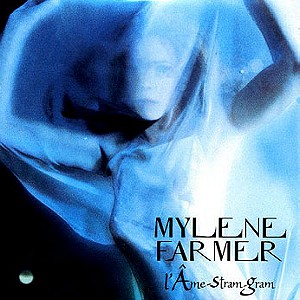
"L'Âme-stram-gram" is a 1999 song recorded by French singer-songwriter Mylène Farmer. It was the lead single from her fifth studio album Innamoramento and was released on 9 March 1999. The lyrics were written by Farmer and the music was composed by Laurent Boutonnat. Musically, the song has techno and dance influences which marked an artistic change in the singer's career, although the rest of the album contains more pop songs. Based on a famous children's counting rhyme, the song is primarily about confidence, secret, and confession and uses the lexical field of psychoanalysis; however, the many puns and double entendres can also provide another meaning explicitly referring to sexuality.

"La Poupée qui fait non" is a 1966 song written by Franck Gérald (lyrics) and French singer/songwriter Michel Polnareff (music). It was recorded by Polnareff, becoming an immediate success in France and one of Polnareff most definitive songs. Jimmy Page played guitar on the recording. It also appeared as the last track in his album Love Me, Please Love Me.
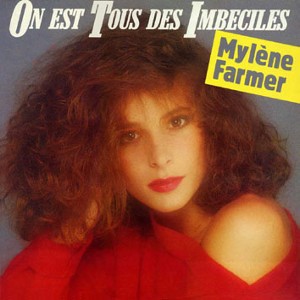
"On est tous des imbéciles" is a 1984 song recorded by French artist Mylène Farmer. It was released in February 1985 as her second single after "Maman a tort" and its English-translated version "My Mum Is Wrong". Although the song was provocative and rather critical of show business, it was often well received in the media. However, in spite of good reviews and an intense promotion on television by the singer, the sales of the single were disappointing.

"L'Instant X" is a 1995 song recorded by the French artist Mylène Farmer. It was the second single from her fourth album Anamorphosée and was released on 12 December 1995. Directed by Marcus Nispel in New York, the music video humorously depicts the apocalypse and shows Farmer bathing in foam. The song became the biggest hit from the album, reaching number six in France. In January 2004, the song was the subject of a remix produced by One-T and was released as promotional single.

"Comme j'ai mal" is a 1996 song recorded by French singer-songwriter Mylène Farmer. Fourth single from her fourth album Anamorphosée, it was released on 1 July 1996. It was a relative failure: indeed, it failed to reach the top ten in France and was the least-selling single from the album.
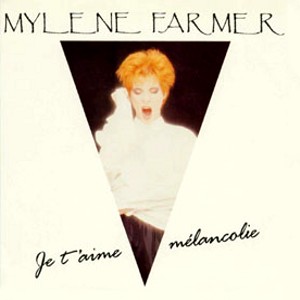
"Je t'aime mélancolie" is a 1991 song recorded by the French artist Mylène Farmer. The song was released as the third single from her third studio album L'autre..., in December 1991. Characterized by its gloomy lyrics and its music video shot on a boxing ring, it achieved success, becoming a top ten hit in France and Belgium.
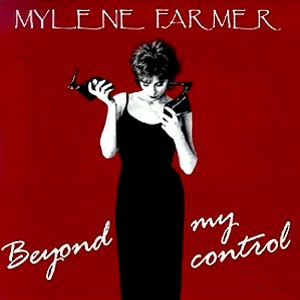
"Beyond My Control" is a 1991 song recorded by French singer-songwriter Mylène Farmer. It was the fourth single from her third studio album L'autre... and was released in May 1992. The song probably remains well known for its controversial music video, censored upon release due to its sexual and violent content. It achieved minor success in terms of sales, even though it reached the top ten in France and Belgium.
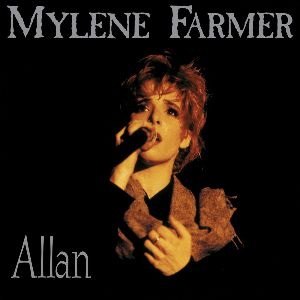
"Allan" is a 1988 song recorded by French singer-songwriter Mylène Farmer from her second album, Ainsi soit je... It was the first single from her first live album, En Concert, released in December 1989. The lyrics clearly refer to a fairy tale by Edgar Allan Poe, mentioning one of his characters. Although the single met with success in discothèques, its sales remained relatively low in comparison with Farmer's other singles.
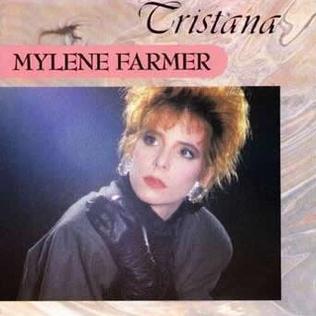
"Tristana" is a 1987 song recorded by the French artist Mylène Farmer. Fourth single from her first studio album Cendres de Lune, the song was released in February 1987. As for the previous single "Libertine", the music video was produced as a film, with many extras and a huge budget. The second single in Farmer's career with lyrics entirely written by the singer herself, it enjoyed an intense promotion on television and met a great success in France, reaching the top ten.
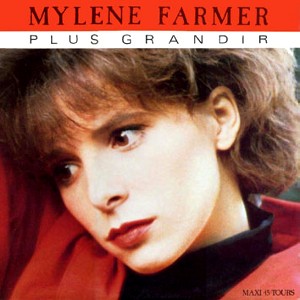
"Plus grandir" is a 1985 song recorded by French singer-songwriter Mylène Farmer and is the first song written by the singer. It was released twice: first, on 25 September 1985 in a studio version as second single from Farmer's debut album Cendres de Lune, then on 12 May 1990 in a live mix version as second single from the live album En Concert. In spite of positive critics and a music video produced as a short film in cinemascope, the song achieved moderate success in France in terms of sales and chart performances.











